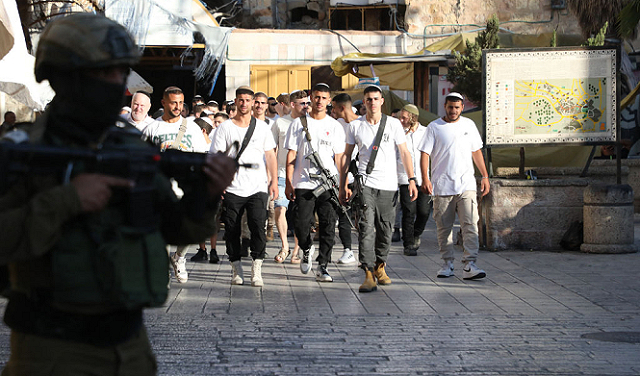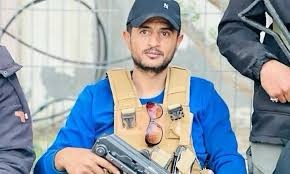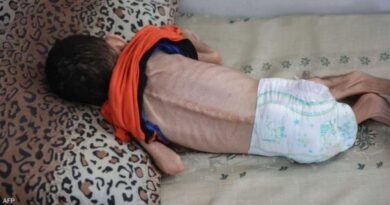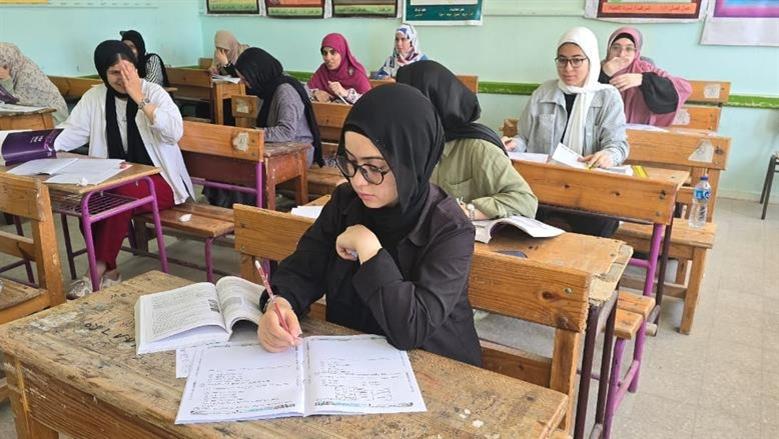19 Palestinians killed by settlers in West Bank since Gaza war began
Al-Khamisa News Network - Gaza

A report in the Hebrew newspaper Yedioth Ahronoth published on Friday on settler attacks in the West Bank says 19 Palestinians have been killed by settlers across the West Bank since the start of Israel’s war on Gaza in October 2023.
It said that of that total, five were killed in the village of Aqraba near Nablus, and noted a striking common feature in all 19 cases: they all took place inside Palestinian villages and in their agricultural fields while people were working there. None of the incidents occurred in an outpost, farm or settlement.
The Palestinian Committee Against the Wall and Settlements says 23 people have been killed by settler gunfire in the West Bank since the start of the Gaza war.
According to the paper, as translated by Sada News, most of the incidents were documented by video and photographs, but the Israeli police have not carried out adequate investigations into them.
It pointed out that in two cases examined recently no suspect was questioned and no eyewitnesses were interviewed to give testimony.
The paper noted another recurring issue in all the incidents: whether the shooters were settlers or soldiers. In most cases Palestinians identify the perpetrators as settlers from outposts or nearby settlements. Some of them roam wearing military trousers for a simple reason: a large number of residents in these places are members of the regional defense force, which is largely made up of settlement residents, who receive training from the Israeli army and carry M16 rifles. When they enter a Palestinian village in a group, it is unclear whether they are on an official mission or acting on a personal initiative.
It said even when investigations are opened, as in the case of the killing of Awda al-Hadhalin in Masafer Yatta south of Hebron at the end of July, the settler who fired the shots was released and returned to the area as if nothing had happened, while Palestinians who were present and witnessed the incident were detained and questioned on suspicion of committing an “assault.”
The paper added, mockingly about the situation: “The police’s behaviour can be justified by Itamar Ben-Gvir’s seizure of the police leadership, since he often boasts that he did so and about the revolution he brought to the police, particularly the unit responsible for the West Bank,” pointing to statements by Israeli police and Shin Bet officials over the past two years about the failure to address crimes committed by settlers in the West Bank.
It continued: “This claim is supported by events on the ground. Two weeks ago Ben-Gvir visited the illegal Ma’ale Amos outpost east of Gush Etzion and took with him two senior officers who sat with the youths (the settlers): the commander of the police in the West Bank, Moshe Benchi, and the commander of the Border Guard forces, Nisso Geita. They were accompanied on the visit by Elisha Yard, a prominent right-wing activist involved in establishing outposts and rural settlements, who himself was arrested exactly two years ago on suspicion of involvement in the killing of a Palestinian from the village of Burqa and was later released. At the time, this was the latest paralysis to afflict the police as the body responsible for maintaining law and order.”
The paper quoted a former senior police officer who served in the West Bank: “This was in fact one of the last attempts by Israel Police to pretend it enforces the law in the Palestinian territories.”
It said, as Sada News translated: “Regarding visits by senior police officers to the illegal outpost, it should be noted they are not the only ones — chiefs of staff also visit illegal outposts, but not to evacuate them. Last Friday, Chief of Staff Eyal Zamir visited the illegal Ma’oz Shaul farm in the Avnei Hefetz area, which was established about three months ago. The Israeli army spokesman’s statement about the chief of staff’s tour that day in the Palestinian territories was limited to mentioning his visit to the Tulkarm refugee camp and did not include the visit to the illegal outpost.”
It added: “The issue of Ben-Gvir’s takeover of the police and the sidelining of its work in the occupied territories could have remained an internal Israeli problem if not for a secondary but important point: international law imposes clear obligations on a state that is considered an occupying power toward the civilian population in the occupied territories. There is a not-insignificant number of Israelis who believe that Judea and Samaria (the West Bank) are not occupied territory, but their view does not prevail — the world regards us as an occupying power, which defines Israel as the controlling authority in those areas. Israel therefore has a duty to protect and guarantee the security of the Palestinian population in the areas under its control, namely Areas C and B. By guaranteeing their security, among other things, we mean that in the event of violent attacks causing bodily harm or property damage, including cases that result in death, a professional and impartial investigation must be conducted to find those responsible and bring them to justice when necessary.”
Yuli Novak, director general of B’Tselem, which documents incidents of violence in the Palestinian territories, says settlers under this government enjoy full impunity: “We have reached a situation where settlers in the West Bank kill Palestinians in broad daylight, sometimes directly in front of cameras, and they emerge unscathed because they have impunity. Yinon Levi, who shot the Hadhalin, knew he could smile immediately after the killing. Other shooters understood there was nothing to fear: politicians back the killings, the police do not investigate, the courts release the shooters. The result is that Palestinians lack the ability to defend themselves and their families when settlers attack them.”






